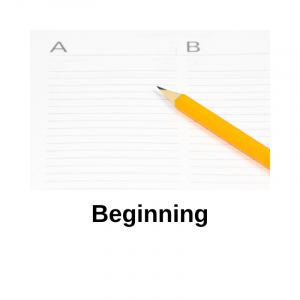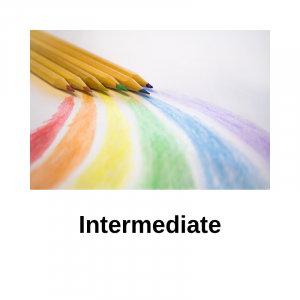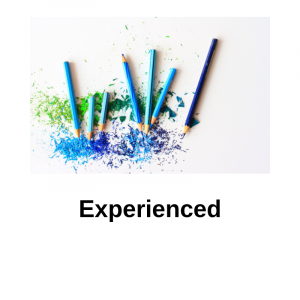14 Integrating Sources and Academic Integrity
In all academic writing we use secondary research from peer reviewed and academic sources. These might include academic journals (both online and hard copy), books, conference notes or reports, educational webpages, published and unpublished theses (available online), research findings, and government data.
How you integrate and acknowledge the authorship of these sources is a key academic skill regardless of your level of study.
This chapter will help to develop your source integration and referencing skills.
What is a reporting verb?
Answer: The answer is in the name. It is a verb (doing word), or verb phrase, used to report about what other authors have written or said. There are a vast array of reporting verbs; in fact too many to list them all here. They each have a slightly different connotation depending on the context in which they are used. (See the table below for a few examples)[1]
| Context | weaker position | neutral position | stronger position |
|---|---|---|---|
| addition | adds | ||
| advice | advises | ||
| agreement | admits, concedes | accepts, acknowledges, agrees, concurs, confirms, recognises | applauds, congratulates, extols, praises, supports |
| argument and persuasion | apologises | assures, encourages, interprets, justifies, reasons | alerts, argues, boasts, contends, convinces, emphasises, exhorts, forbids, insists, proves, promises, persuades, threatens, warns |
| believing | guesses, hopes, imagines | believes, claims, declares, expresses, feels, holds, knows, maintains, professes, subscribes to, thinks | asserts, guarantees, insists, upholds |
| conclusion | concludes, discovers, finds, infers, realises | ||
| disagreement and questioning | doubts, questions | challenges, debates, disagrees, questions, requests, wonders | accuses, attacks, complains, contradicts, criticises, denies, discards, disclaims, discounts, dismisses, disputes, disregards, negates, objects to, opposes, refutes, rejects |
| discussion | comments | discusses, explores | reasons |
| emphasis | accentuates, emphasises, highlights, stresses, underscores, warns | ||
| evaluation and examination | analyses, appraises, assesses, compares considers, contrasts, critiques, evaluates, examines, investigates, understands | blames, complains, ignores, scrutinises, wars | |
| explanation | articulates, clarifies, explains | ||
| presentation | confuses | comments, defines, describes, estimates, forgets, identifies, illustrates, implies, informs, instructs, lists, mentions, notes, observes, outlines, points out, presents, remarks, reminds, reports, restates, reveals, shows, states, studies, tells, uses | announces, promises |
| suggestion | alleges, intimates, speculates | advises, advocates, hypothesises, posits, postulates, proposes, suggests, theorises | asserts, recommends, urges |
Why use a reporting verb at all?
In order to correctly integrate material from an external source (anything you did not write) into your own writing, a reporting verb helps you to introduce the ‘stranger in the room’ (that is, the outside source). Good source integration also acknowledges the original author/s, using an in-text citation (see Chapter 10 – Referencing Skills). In academic writing you will often see an assessment marking criteria dedicated to source integration and/or referencing. Proficient use of reporting verbs and verb phrases will demonstrate your capacity to integrate sources better than simply providing a citation at the end of an entire paraphrase or summary.
Correct examples (generic):
Author (citation) claims [paraphrase].
Author and Author (citation) acknowledge that “[insert quote]”.
Author et al. (citation) describe [paraphrase], whereas Author (citation) and Author (citation) disagree, stating that [paraphrase].
Basics:
Sometimes the simplest way is the best way. Two commonly used reporting verb phrases are – According to Author (citation), and Author (citation) states.
Avoid using the term ‘said’, the past tense of ‘say’, as a reporting verb. This is a word used to describe spoken or uttered words, not written work, and there are far better and more pointed or creative ways to introduce authors’ perspectives, knowledge, claims, or arguments.
Unreliable vs Reliable Sources
When researching for materials for your an assignment, always use reliable sources that contain factual or truthful information. Unreliable sources include personal blogs, social media, personal webpages, bias webpages (e.g., a vegan website giving “balanced” dietary advice), and many commercial media outlets. They are often inherently biased and based on personal opinion rather than sound research.
Reliable sources contain information that has been fact-checked and cross-referenced for validity and include tertiary educational publications and websites, government websites, and some registered and well-known organizations (e.g., World Health Organization[2]; UNHCR[3]; AHRC[4]; Red Cross[5][6]; Amnesty International[7]). Reliable media include ABC[8] (Australia), BBC[9] (World News), The Guardian[10] (AU; UK), and The Conversation[11].
World organizations will frequently use social media to raise awareness or ask for donations, plus media outlets publish stories via social media, however, you should go directly to the source of the information, not rely only on what you see on social media. Ensure you are completing your own fact-checking and cross-referencing so that you have the full story.
Reliable vs Academic Sources
While reliable sources are good for gaining background information on an assignment topic and to increase your overall understanding, academic, peer reviewed sources are required for academic assessments. You may cite a reliable source if you are scrutinizing the way events or people are represented in the media or if you are specifically required to use them for an assessment, however academic sources are generally what are required in the marking criteria of assessments.
An academic source is well-researched, written by an academic, usually peer-reviewed, and published in an academic journal or book by a reputable publisher. Peer review means exactly that; it has been reviewed by other academics, often in the same field of study, to ensure that it is of the highest quality of research and writing.
In the UQ Library catalogue peer reviewed publications are marked under the entry details:

In term two of TPP Academic English, you will have a scheduled lesson with one of UQ’s excellent librarians to help you navigate the vast array of information accessible to you, via Academic Journal Databases and the library catalogue.
In the third term of TPP Academic English you will learn about the “Hierarchy of Reading” in class and this will ensure you are fully prepared for your term three written assessment and beyond.
Academic Integrity and Misconduct
What happens if I do not use in-text citations?
As defined in Chapter 10 – Referencing Skills, plagiarism is the practice of taking someone else’s work or ideas and passing them off as one’s own. Using paraphrased or summarised information from any source without acknowledging the original author will lead to an allegation of academic misconduct and an investigation.
Academic Integrity
Academic integrity is a way of describing the ethical principles that underpin academia, the pursuit of knowledge and student life. These include the International Center for Academic Integrity’s fundamental values: honesty, trust, fairness, respect, responsibility and courage.
Academic integrity forms a central part of your intellectual and personal development. It teaches you how to uphold values, develop proper skills in research, thinking and writing, and how to conduct yourself in an ethical manner. These are lifelong skills that will serve you well in your future life and career.
As a member of the UQ academic community, you have a duty to maintain the highest standards of academic integrity in your work. You must avoid cheating, plagiarism, collusion and other forms of academic misconduct[12].
For further information visit my.UQ – Academic integrity and student conduct
Synthesizing Sources
Synthesizing simply means combining. Instead of summarising main points from each text in turn, you combine the key ideas and findings of multiple sources to make an overall point. At its most basic level it involves looking at the similarities and differences between all your sources.
When preparing for a written assignment it can be helpful to organise your research notes in the form of an annotated bibliography (see The Charting Method in Chapter 8 Note-taking Skills). This will make the transition to synthesizing sources simpler because you can quickly compare ideas and claims across a range of texts (synthesizing sources will be covered in further detail in the TPP Academic English course with detailed examples given in class).
Refer to Chapter 10 for Referencing Skills.
- University of Adelaide. (2014). Verbs for reporting. Writing Centre Learning Guide. https://www.adelaide.edu.au/writingcentre/sites/default/files/docs/learningguide-verbsforreporting.pdf ↵
- https://www.who.int/ ↵
- https://www.ohchr.org/EN/Pages/Home.aspx ↵
- https://humanrights.gov.au/ ↵
- https://www.icrc.org/en ↵
- https://www.redcross.org.au/about/how-we-help/international-aid ↵
- https://www.amnesty.org.au/ ↵
- https://www.abc.net.au/ ↵
- https://www.bbc.com/news/world/australia ↵
- https://www.theguardian.com/au ↵
- https://theconversation.com/au ↵
- University of Queensland. (2021, August 23). Academic Integrity and student conduct. https://my.uq.edu.au/information-and-services/manage-my-program/student-integrity-and-conduct/academic-integrity-and-student-conduct ↵
Also referred to as a scholarly publication, a peer reviewed article undergoes a review process that subjects it to scrutiny by other experts in the same field of knowledge.
source material is where you use the information and ideas of others in your own academic writing - they can be text, speech, images, websites, videos.
Connotation offers more than a simple definitional representation of the word, but a subjective interpretation that is contextually derived
The brief form of the reference that you include in the body of your work (essay, report). Follow the referencing style guide for exact details.




